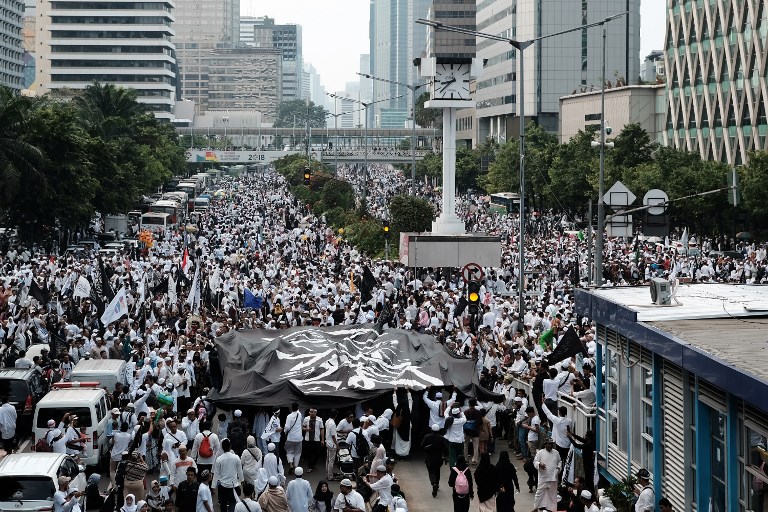Jakarta had one of the highest number of cases related to religious intolerance in Indonesia in recent years, according to a new study, representing a worrying trend of diminishing democratic freedoms and human rights in the capital and the country as a whole.
Setara Institute for Democracy and Peace yesterday released the results of its study, which spanned across 12 years, showing that West Java, followed by Jakarta, were the most intolerant provinces in Indonesia over the time period.
In West Java, Setara found 629 incidents related to violation of religious rights. Jakarta, in second, was quite far behind with 291 violations, followed by East Java with 270.
“In West Java, the number of intolerant people is very high. There are many local actors who consistently persecute minorities,” Setara research director Halili Hasan said in a press conference yesterday.
When only looking at the past five years, Setara found that the top three did not change, with West Java on top with 162 incidents of religious intolerance, followed by Jakarta with 113 and East Java with 98.
Among the examples given to describe incidents of religious intolerance include discrimination, hate speech, acts of violence, as well as rejections to build houses of worship for adherents of minority religions. Political divide also often led to religious discrimination in recent years.
Setara urged the government to promote religious tolerance not by “banning face veils,” but by strengthening regulations and guarantees for freedom of religious worship — particularly for religious minorities — and to limit space for intolerant expression.




